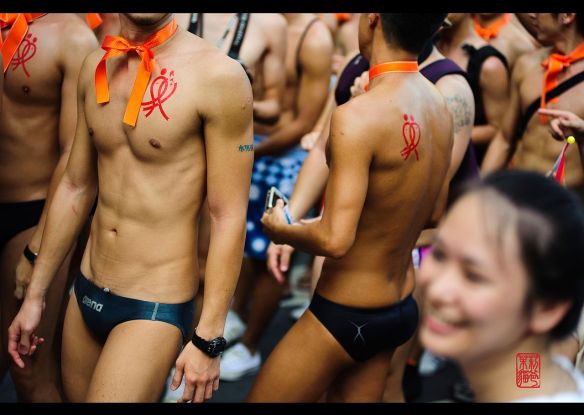 If you’ve been in Taiwan for a substantial period of time but didn’t grow up here, chances are you’ve sat on the outskirts of an hilarious conversation involving characters from the books of martial arts novelist Jin Yong (also known as Louis Cha) during which you’ve had completely no idea what was going on, or what the jokes were about. This has been my fate on several occasions, as, although I’ve bought several volumes of Jin Yong’s novels, I’ve never mustered up the courage to commit to reading a whole one and they’re currently rotting on my shelves. Given that generations of teenagers in Taiwan have read most of the Jin Yong canon, there are a lot of mainstream cultural references that revolve around these books.
If you’ve been in Taiwan for a substantial period of time but didn’t grow up here, chances are you’ve sat on the outskirts of an hilarious conversation involving characters from the books of martial arts novelist Jin Yong (also known as Louis Cha) during which you’ve had completely no idea what was going on, or what the jokes were about. This has been my fate on several occasions, as, although I’ve bought several volumes of Jin Yong’s novels, I’ve never mustered up the courage to commit to reading a whole one and they’re currently rotting on my shelves. Given that generations of teenagers in Taiwan have read most of the Jin Yong canon, there are a lot of mainstream cultural references that revolve around these books.When listening to this rather racy podcast on four Taiwanese guys’ experience of “romantic” dalliances with gay foreigners in Taiwan (click here to download it directly or click on 「台灣及其他國家」 under the 「收聽下載點」 section after following the link), I was perplexed when everyone started laughing at one point in the podcast over the nickname that one of the hosts had adopted for the show: 「獨孤求幹」. “Lonely, asking to be fucked” is the literal reading of the nickname, but this in itself was too crude to inspire so much mirth. The wit (well, you can call it wit), comes because the phrase is a corruption of the name of a Jin Yong character, 「獨孤求敗」”Lonely in search of defeat”. He has this name because he is so expert at swordplay that he wants to be defeated just to find someone who is on par with his skill.
Now the joke is starting to become a lot clearer – swordplay, seeking someone equally skilled at… There we go.
For those still none the wiser: The 「幹」 meaning “fucking” suggesting that he is a master at it, but is looking for someone that can beat him in terms of skill and, here, suggests that he could be turned from a “top” to a “bottom” if he found someone more skilled at it.
I’ve found that in Chinese tones being the same, ie 敗bai4 and 幹gan4 both being fourth tones, tends to be more important in wordplay than rhyme or off-rhyme as in English.
Let me know if you’ve had a similar experience in finding a Jin Yong reference that you just didn’t get.
Quick note that the podcast contains some very adult content.
Lead photo credit: Liu Wen-cheng
